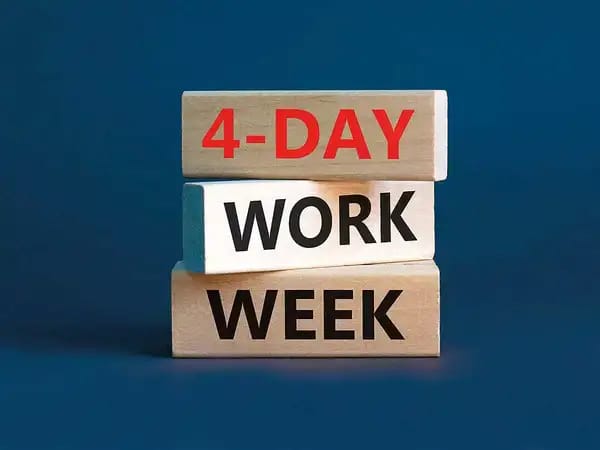A sweeping international study across six high-income countries reveals that a four-day workweek—without pay cuts—significantly improves employee wellbeing. From reduced burnout to better sleep and job satisfaction, the trial shows that shorter workweeks may be a powerful lever for healthier, happier workplaces. The findings are observational but compelling.
A groundbreaking study published in Nature Human Behaviour and led by 4 Day Week Global has reignited global conversations around work-life balance. The largest trial of its kind tested a four-day workweek across 141 organizations in the US, UK, Canada, Ireland, Australia, and New Zealand—without reducing salaries.
Key takeaways from the study:
- Improved mental and physical health
Participants reported lower fatigue, fewer sleep problems, and enhanced overall wellbeing.
- Higher job satisfaction
Employees felt more fulfilled and engaged, with better work-life integration and reduced stress.
- No drop in productivity
Despite fewer hours, companies did not observe a decline in output—echoing earlier findings from Iceland and the UK.
- Reduced burnout
The shortened schedule led to a marked decrease in burnout symptoms, especially in high-pressure roles.
- Income preservation matters
Crucially, the trial maintained full pay, which researchers say is key to the positive outcomes.
- Global applicability
Though focused on high-income countries, the model offers insights for broader adoption, especially in sectors where flexibility is feasible.
Caveats to consider:
- Most studies were short-term and observational, making long-term impacts harder to assess.
- Control groups showed no similar improvements, strengthening the case for the four-day model.
Why it matters:
As burnout and mental health challenges rise globally, especially post-pandemic, this trial offers a hopeful blueprint for reimagining work. Policymakers and business leaders may find in it a compelling case for change—balancing productivity with human wellbeing.
Sources: The Hindu, Ainvest, Common Dreams

